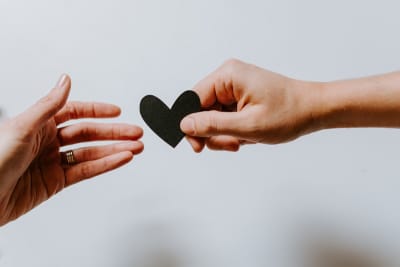I’m not a crier. When grief hits, even the grief over my uncle’s death – the uncle who had been as close as a father – I didn’t cry.
But on New Year’s Eve, when I finally made the decision to sell my business and retire, I did cry; a full-on hysterical, nose-streaming weeping, all over my best friend.
She understood, as my family didn’t.
In giving up my business, I lost my purpose, my identity and my worth as a individual. I felt like a piece of old frayed rope flapping in the wind.
I’ve written about the Protestant Work Ethic before. I was brought up in a Puritan household where the values of hard work and thrift were sacrosanct. The prospect of not working is anathema to me.
In hospital, another thing I was facing was the prospect of surgery and a stoma bag. There was, however, something else the consultant wanted to try first. This is a new drug, Filgotinib; so new I would be the first person for whom the hospital had prescribed it.
They had to apply for permission to prescribe it and then for special funding, because it is very expensive. If it works, I’m going to be on it long term, and it costs over £10,000 per year.
I felt so guilty about this, but the consultant was sanguine and even a little impatient. “I don’t care who pays for it or how,” he said. “You need it and that’s the end of it.”
The consultant has no concept of judging my worth by how hard I’ve worked, or what I have contributed to society. The drug is not a payback for taxes I’ve paid or the voluntary work I’ve done. This drug is prescribed because I am a human being: a patient in need.
This concept of worth without work is new to me, just as early retirement is new.
It would, however, never occur to me to judge another person by their work, or for their contribution to society. I try to refrain from judging on the basis that I can never know all the circumstances of another’s life and, even if I did, I am not equipped with the wisdom to judge. Yet I judge myself without mercy.
So, I have started to see myself simply as a human being with intrinsic worth. I am worthy of this new medicine. I am worthy of that hospital bed and the kindness of the medical, nursing and care staff.
I am worthy, and so are you.
How many of us judge ourselves harder than we would ever judge another? How many of us feel unworthy?
We don’t need to feel that way.
You have immense value; you have worth beyond measure. You have not had to do anything to earn that worth; it is given to you at birth, and it is never taken away.
You are worthy, and so am I.



Comments
You need to be Logged In and a Moodscope Subscriber to Comment and Read Comments